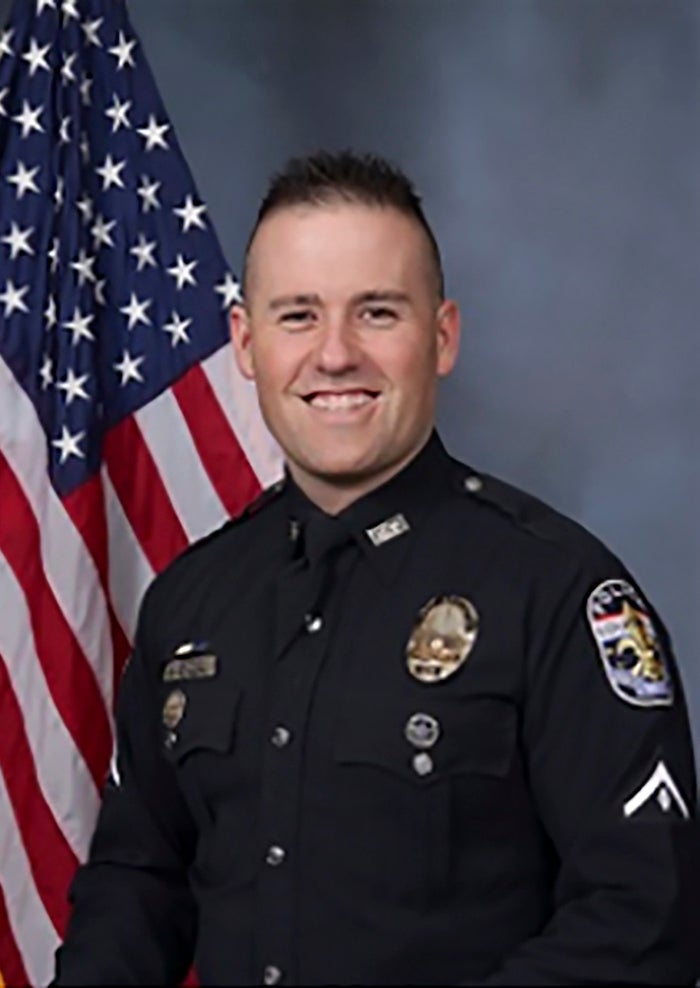Firing upheld for officer who sought Breonna Taylor warrant
The Kentucky police detective who sought the no-knock search warrant that led to the fatal shooting of Breonna Taylor has had his firing upheld

Your support helps us to tell the story
From reproductive rights to climate change to Big Tech, The Independent is on the ground when the story is developing. Whether it's investigating the financials of Elon Musk's pro-Trump PAC or producing our latest documentary, 'The A Word', which shines a light on the American women fighting for reproductive rights, we know how important it is to parse out the facts from the messaging.
At such a critical moment in US history, we need reporters on the ground. Your donation allows us to keep sending journalists to speak to both sides of the story.
The Independent is trusted by Americans across the entire political spectrum. And unlike many other quality news outlets, we choose not to lock Americans out of our reporting and analysis with paywalls. We believe quality journalism should be available to everyone, paid for by those who can afford it.
Your support makes all the difference.The Kentucky police detective who sought the no-knock search warrant that led to the fatal shooting of Breonna Taylor has had his firing upheld.
The Louisville Metro Police Merit Board voted 4-0 on Wednesday to uphold the termination of Joshua Jaynes after hours of deliberation, news outlets reported. The decision came after three days of hearings in which Jaynes and his attorney sought his reinstatement.
Jaynes obtained the warrant for the March 13, 2020, drug raid in which Taylor, a 26-year-old Black emergency medical technician, was killed.
He was fired in January by former interim Police Chief Yvette Gentry, who said he was “untruthful” about how he obtained some information about Taylor in the warrant.
In an interview last year with Louisville police investigators, Jaynes acknowledged that he did not personally verify that a drug-trafficking suspect was receiving mail at Taylor’s apartment, even though he had said in an earlier affidavit that he had. Jaynes said he relied instead on information from a fellow officer.
His lawyer, Thomas Clay, argued that Jaynes did not lie on the affidavit and did not have a responsibility to verify information from a fellow law enforcement officer before putting it in his affidavit.
Jaynes will appeal the merit board ruling to circuit court after the official order is issued, Clay said.